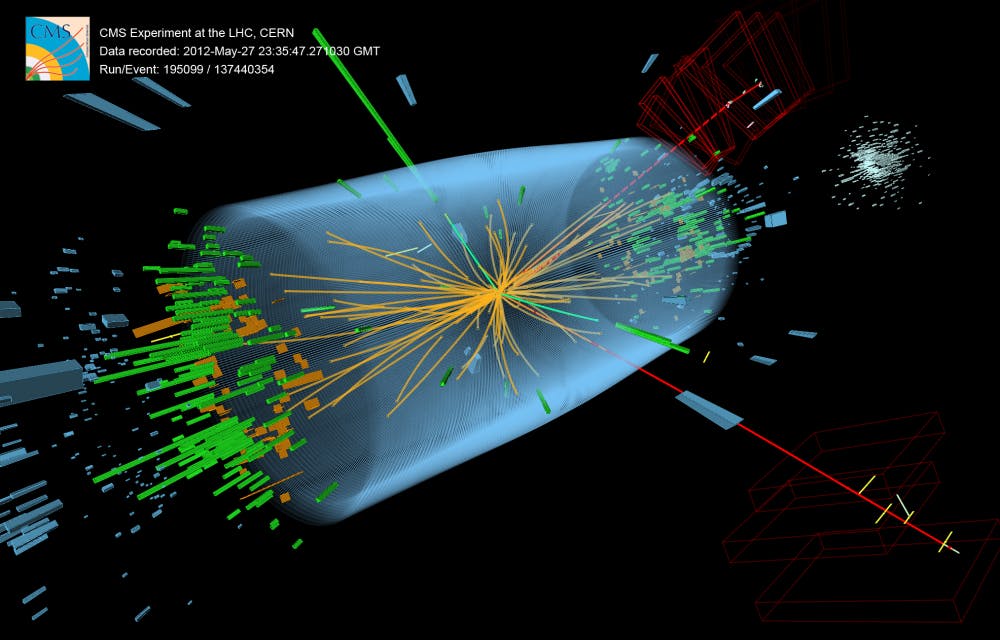UF researchers are celebrating the completion of a project 50 years in the making, and it has paid off with Nobel Prize recognition Tuesday.
More than a year ago, a team of UF researchers contributed to the discovery of the Higgs boson, the “God particle” that was theorized about for decades.
The Higgs boson is a subatomic particle that explains how matter attains mass. As a set of elementary particles that make up the world, the model is the best explanation for how the universe works.
The researchers at UF were part of an international team that designed and built the muon detectors that were able to prove the discovery, according to a UF news release.
“I’m very proud of our project and for our collaborators (for winning the Nobel Prize),” Andrey Korytov said. “We have 3,000 contributors. Everyone contributed in one way or another.”
Korytov is a professor at UF and has been working on the project since 1995. He is one of 40 members at the university who have been involved in the research.
The UF High-Energy Experimental Group is one of the largest groups in the U.S. that helped to work on the research and is led by distinguished professor Guenakh Mitselmakher.
“We are very happy (about the Nobel Prize),” Mitselmakher said. “After 20 years of searching for the particle, we found it. So, it justifies all of our efforts for this.”
The organization, which includes nine faculty members and more than 30 research personnel and students, helped make the discovery in July 2012.
“We are very involved in the stages of design and construction of the experiment,” Korytov said. “A big chunk of this experiment was led from Florida.”
The research cost about $1 billion and involved collaborators in 40 different countries, Korytov said.
“The whole discovery is really quite simple for physicists but not so simple for people who are not in physics,” Mitselmakher said. “I think this knowledge belongs to the most fundamental knowledge that we have in physics.”
Mitselmakher said he is not sure of the impact the discovery will have in future years but said it will have a significant effect on the future of humanity.
The research was led by ATLAS and CMS, which are two separate general-purpose particle physics experiments.
Korytov said his research team will take a few years off and return in 2015.
“What’s important for science is important for humanity,” Mitselmakher said. “I think it’s one of the reasons for the university being great. So, I’m happy to contribute to that.”
A version of this story ran on page 1 on 10/10/2013 under the headline "Higgs boson discovery leads to UF Nobel win"
CMS Higgs Search in 2011 and 2012 data: candidate ZZ event (8 TeV) with two electrons and two muons.






